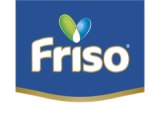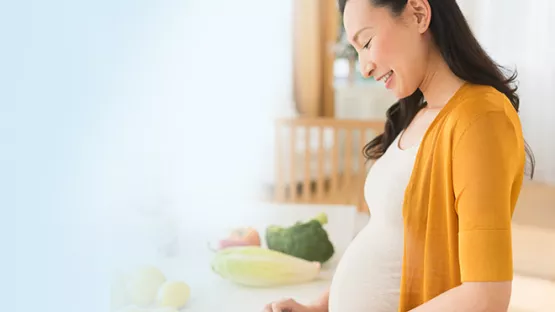
Getting the healthy prenatal diet right
Pregnancy is a memorable experience for many women. As you watch and feel the little one grow inside, it’s important to get the basics right.
We know that getting the right vitamins and minerals is essential but how should you go about it? We’ve got some simple tips on ways to get the nutrients you need naturally throughout your pregnancy. It’s a philosophy that could also benefit your baby when he/she is born. Before you put any of our suggestions to the test, do consult with your doctor or a qualified healthcare professional.
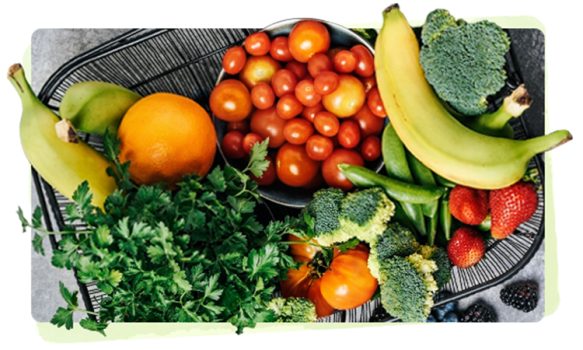
Go au naturel with ingredients
Most canned or packet foods contain plenty of additives and sugar. Bear in mind that you are now eating for two and try to cut down on them . Instead, pick nourishing whole foods such as green leafy vegetables and fresh fruit1. The more colourful your grocery basket is, the more antioxidants, vitamins and minerals you’ll be getting in your diet.

Load up on good fats
Not all fat is bad. The good kind of fat, which you get from olive oil, cod liver oil, butter, nuts, eggs and meat is crucial for your baby’s brain and organ development2. It might be a little overwhelming with the numerous options available but a quick check on where the food item is from and its components could be a way to gauge its quality.Everything in moderation - it’s always best to have a balanced diet and follow your doctor’s recommendation.
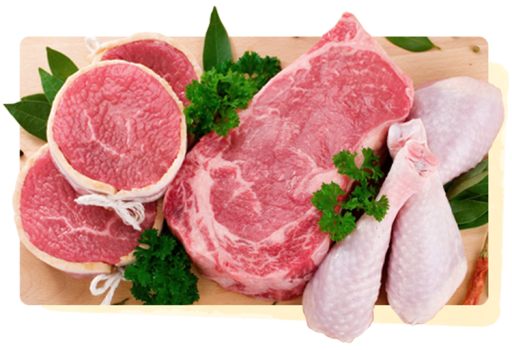
Be generous with your iron intake
Iron is one of the most important nutrients during your pregnancy2. It helps build the placenta and keeps blood sufficiently oxygenated for your growing baby. While red meat is one of your best iron sources, try other iron-rich foods like turkey, chicken, fish, pork, legumes, vegetables and grains3. You need a little more planning to help your body make the most out of the foods you’re eating . For example, you’ll also have to get enough vitamin C, which helps you absorb six times more iron. There are also iron-inhibitors like calcium that lessens the absorption rate. If you’re unsure, it’s always a good idea to speak with a dietician. They’ll be more than happy to help!
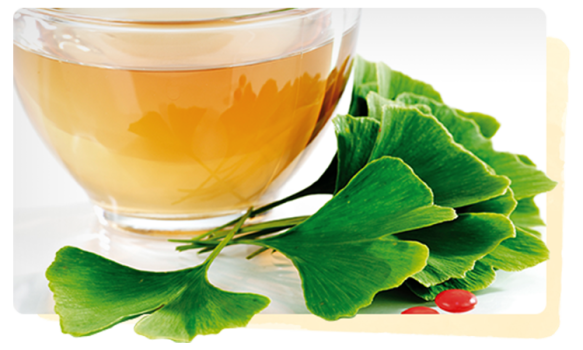
Consume herbs cautiously
Homeopathy is a medical system based on the belief that the body can cure itself, and it’s a great alternative for body recovery; but during this delicate period, it’s always better to be extra careful. Rather than self-diagnose, have a talk with your doctor or a qualified herbalist. If you’re given the green light, some herbs like red raspberry leaf as a uterine tonic, nettle leaf and alfalfa leaf for kidney function, and peppermint for digestion are known to be beneficial when taken in moderation4.
With this in mind, you’re now better equipped to ensure you’ve got what it takes for a healthy baby and you. Eating becomes a little trickier (or more fun) now that your palate continues to change as you progress into your trimesters and sometimes you could even look at other ways to give your daily nutritional intake a boost (Link to Frisomum). Think of it as your first adventure with your little one.
Disclaimer: Breastfeeding is the best nutrition for healthy growth and development of babies.
References:
